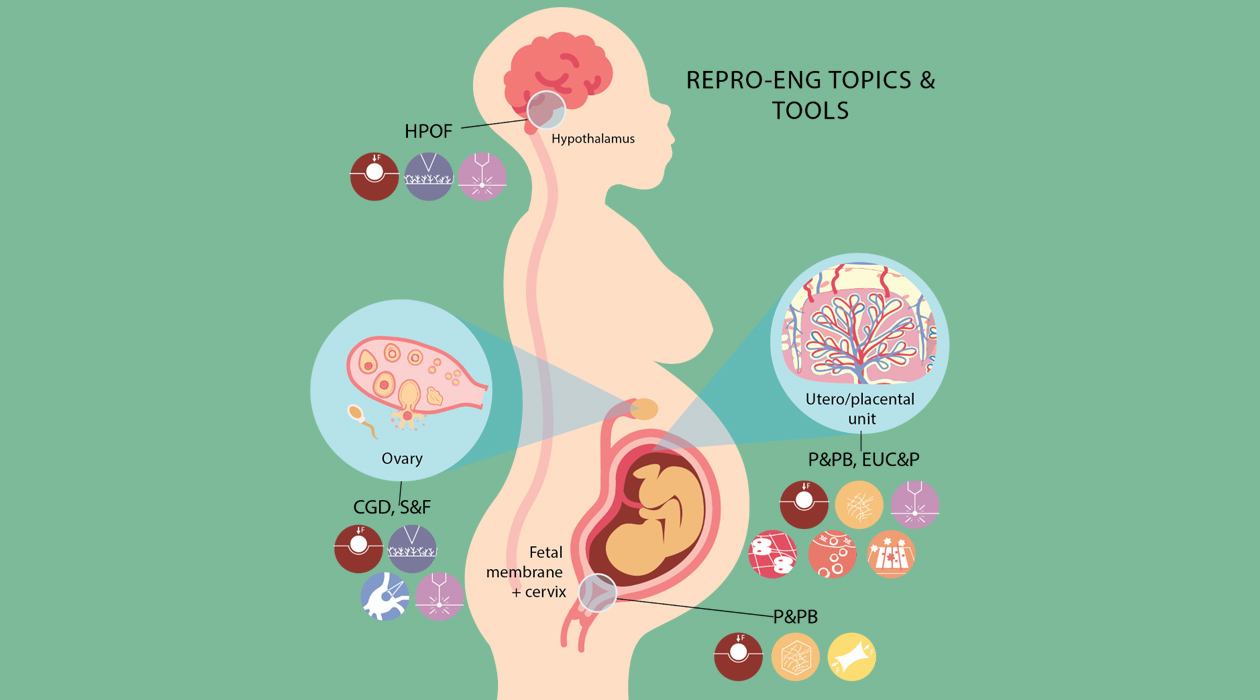New training grant for researchers in reproductive sciences and engineering

The work will focus on germ cell development (GCD), hypothalamic-pituitary-ovarian function (HPOF), spermatogenesis and fertilization (S&F), embryo-uterine crosstalk and pregnancy (EUC&P), and placentation and preterm birth (Pl&PTB). / Original illustration by Jillian Nickell
The National Institutes of Health has approved the T32 grant, “Interdisciplinary Research Training at the Interface of Reproductive Sciences and Bioengineering." The training program is aimed at predoctoral students who want to work at the interface of reproductive sciences and engineering, two long-standing areas of research excellence at the University of Illinois Urbana-Champaign.
“Both the White House and the National Science Foundation have been emphasizing the importance of looking at women’s health. This grant is timely because we can use experts across the campus to bring biology and engineering together,” said Amy Wagoner Johnson (EIRH/RBTE), a professor of mechanical science and engineering and a co-director on the grant.
The program will draw from the rich history of interdisciplinary research, especially members of the Beckman Institute for Advanced Science and Technology, Carl R. Woese Institute for Genomic Biology, and the Carle Illinois College of Medicine. The work will focus on germ cell development, hypothalamic-pituitary-ovarian function, spermatogenesis and fertilization, embryo-uterine crosstalk and pregnancy, and placentation and preterm birth.
“This is the first time this particular T32 grant has been approved on our campus and we are excited to have biologists and engineers work on different aspects of reproduction,” said Indrani Bagchi (EIRH co-leader), a professor of comparative biosciences and a co-director on the grant.
The program will also emphasize co-mentorship of trainees by engineers and reproductive scientists, course requirements in both disciplines, and science communication, which will enhance team science endeavors.
“This grant was possible because of the EIRH theme at the IGB, which has members in several colleges across campus working on challenges in reproductive health,” Bagchi said. “Based on our past success, we are confident that this grant will help train a new generation of researchers who will advance the field of reproductive sciences in ways that would not otherwise be possible.”
